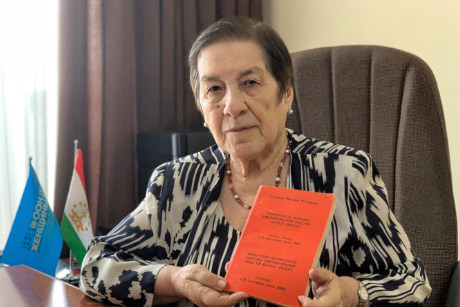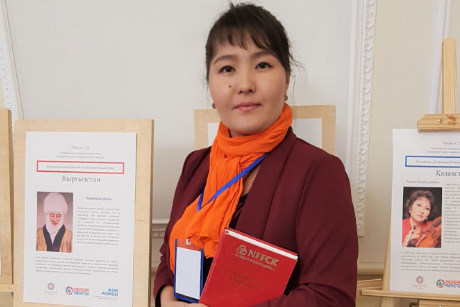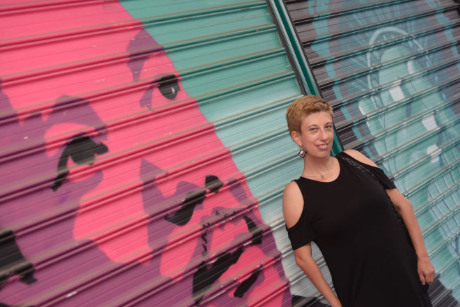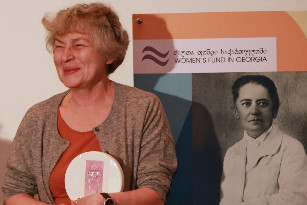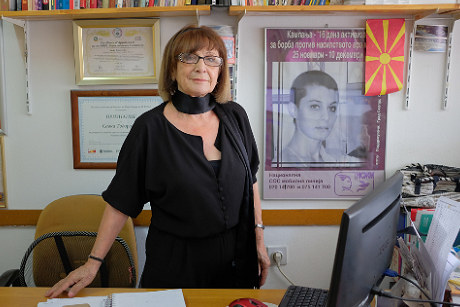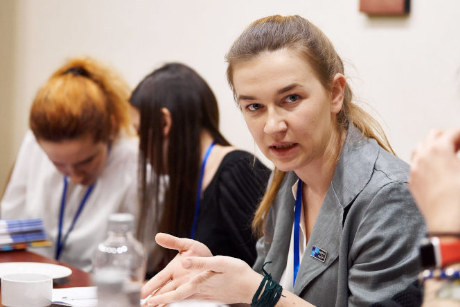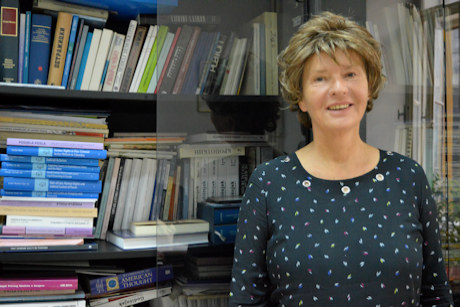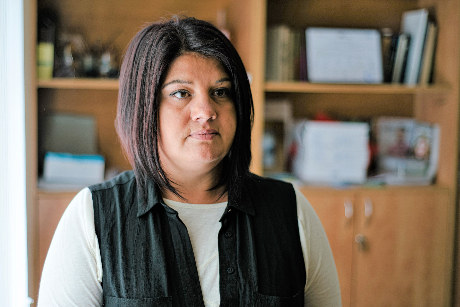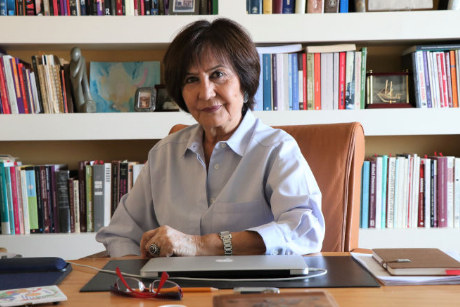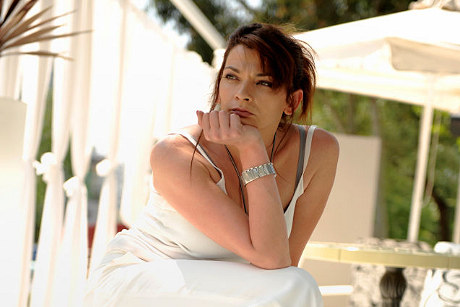12 voices, 12 journeys, 12 women from 12 Europe and Central Asia countries
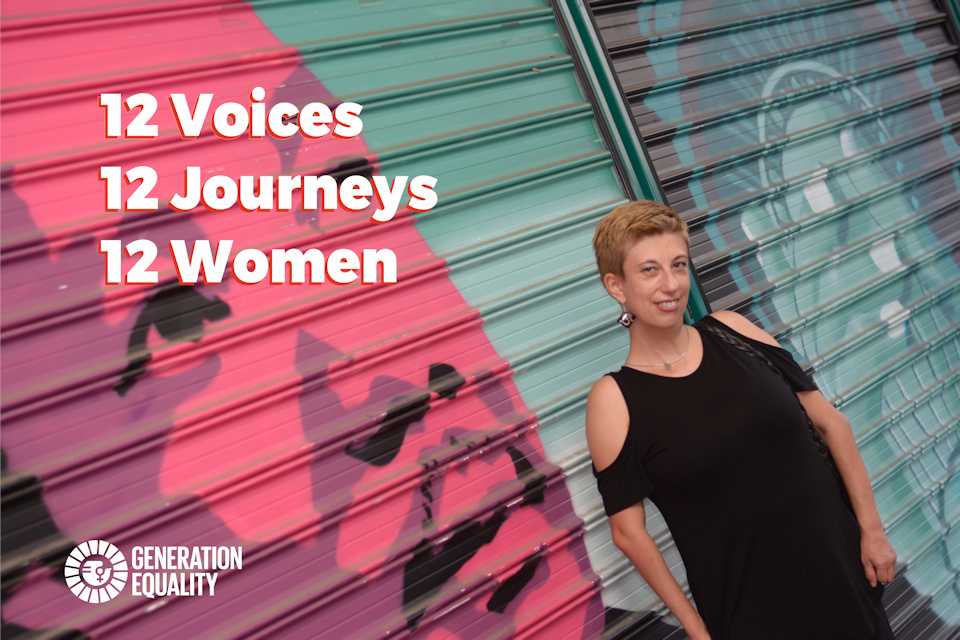
Passionate about gender equality and women`s rights, 12 women from 12 Europe and Central Asia countries explore aspects of the 12 critical areas of the Beijing Platform for Action: poverty; education and training; health; violence; armed conflict; economy; power and decision-making; institutional mechanisms; human rights; media; environment; and the girl child. On the eve of 2020 and the 25th anniversary of the 1995 Beijing Declaration and Platform for Action, the story compilation was launched with a blog from UN Women Regional Director for Europe and Central Asia, Alia El-Yassir, that called on changemakers of all ages to tackle the unfinished business of empowering women.
These 12 women are reimagining economies, societies and political systems to achieve gender equality. Imagine a world where gender equality is the norm. These women do.
In the words of Guljahon Bobosadykova: “What did I do today to improve the situation of women and girls?”
Guljahon Bobosadykova is the chairperson of the Tajik coalition, From Equality de Jure to Equality de Facto. Nearly 25 years ago, she represented her country at the Fourth World Conference on Women in Beijing, China, which was the largest gathering ever held of gender equality advocates. Read more►
Take five: “It’s time for the new generation of activists to dare and act!”
An activist fighting against child marriage since she was 14, she believes that barriers remain in achieving equality between boys and girls. In this interview, Ms. Altyngul Kozhogeldieva discusses what’s changed in gender equality and under-age marriages in Kyrgyzstan since Beijing 1995, warns of the dangers of poor implementation and radicalization, and calls on the next generation to step up. Read more►
In the words of Milesa Milinkovic: “We need to be supportive in activism for the rights of women with disabilities”
Milesa Milinkovic, 42, is a vocal advocate for the rights of women with disabilities. Director of Seize the Film, an international film festival in Serbia that features movies on persons with disabilities, Milesa is also a mentor in the UN Women-supported project, Autonomy, Voice and Participation of Women with Disabilities. Read more►
Take five: “Time has come for women to have more power”
A participant at the Fourth World Conference on Women in Beijing in 1995, she witnessed the moment when a visionary agenda for women`s rights was adopted. In this interview, Edita Tahiri discusses women in power and decision-making, an area of concern included in the Beijing Declaration. Read more►
Ask an activist: Why was there a need to adopt the Beijing Declaration and Platform for Action?
Marina Tabukashvili is Head of Georgia’s Taso Foundation, the National Women`s Fund and the Memory Research Center. She tells us why the Beijing Declaration and Platform for Action, a visionary agenda to empower women and girls, was adopted in 1995, and discusses what prevents women from realizing their rights today. Read more►
Take five: “Gender equality means to empower women and girls with opportunities to reach their potential”
Leila Makhmudova, a young feminist, 26, freelancer and social activist from Almaty, Kazakhstan, works on women empowerment and inclusion projects. She shares her views on promoting gender equality, where we are on women`s rights and why having economically empowered women and girls is important for a country. Read more►
Ask an activist: What is your message to the new generation of women and men activists?
Savka Todorovska from Skopje, Republic of North Macedonia, was a participant at the Fourth World Conference on Women held in Beijing in 1995. At the time, she was acting President of the National Council for Gender Equality, a national network of more than 100 independent organizations and women's groups that foster discussions on women’s needs and issues. Read more►
In the words of Andriana Susak-Arekhta: “Only I get to decide what my life should be. I was born free, I am free, and I will die free”
A military veteran and civil society activist Andriana Susak-Arekhta, 31, from Ukraine, reveals the emergence of the women’s veteran movement in Ukraine. Born in Kosiv, Western Ukraine, she participated in the Revolution of Dignity in Ukraine. In 2014, she joined the Armed Forces of Ukraine as a volunteer and was a ground attack trooper with the rank of junior sergeant. Read more►
Take five: “Thanks to the Beijing Declaration, violence against women is discussed openly and is no longer solely a private, family issue”
Professor Jasna Bakšić Muftić, 58, teaches Theory of Law and State at the University of Sarajevo, Bosnia and Herzegovina. She was part of the Bosnia and Herzegovina delegation at the Fourth World Conference on Women in Beijing in 1995. She was a member of the civil society organization MAK Bosanka and a law expert and activist who spoke out for women’s rights, including the rights of survivors of conflict-related sexual violence. Read more►
Take five: “While everyone is silent, nothing can happen”
Natalia Nalimova, from Tiraspol in eastern Moldova, works for the NGO, Healthy Future, which assists HIV-positive persons. Ms. Nalimova is also a “Positive Champion” who has publicly told her personal story as part of the “Positive Deviance” project, supported by the Initiativa Positiva NGO, UN Women Moldova and the Government of Denmark. The initiative helps women to overcome violence and advance the rights of women and men in Moldova. She shares her perspectives on Beijing +25. Read more►
Ask a professor: What steps should Turkey take to achieve gender equality by 2030?
Professor Yakın Ertürk, based in Ankara, is a researcher and retired professor of Sociology, with academic interests in human rights, gender equality, violence against women, and conflict and peace. During the Special Session of the General Assembly on Beijing +5 in 2000, she was the Director of the UN Division for the Advancement of Women. Read more►
In the words of Ema Andrea: “Gender equality means coexistence between women and men, not a competition”
Albanian actress Ema Andrea, 48, is co-founder of Albanian Women in the Audio-visual Association, which promotes gender equality for professional women active in the cinematography and multimedia sectors. A women’s rights advocate, Ms. Andrea is a professor at the Academy of Arts in Tirana. She speaks to UN Women about gender equality in Albania and the portrayal of women in media, which is related to the Beijing Declaration's "Women and Media" area of concern. Read more►
